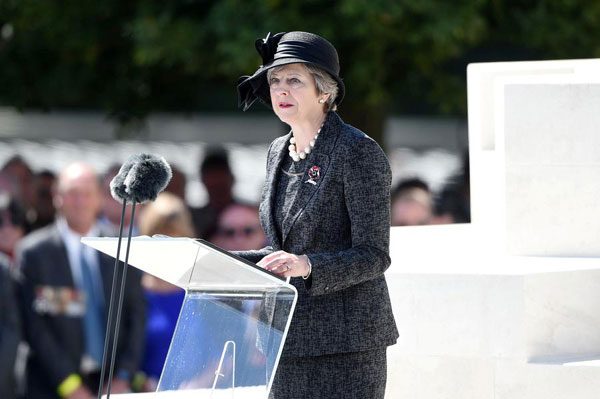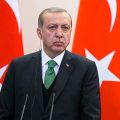
LONDON – The automatic right of European Union citizens to live and work in Britain will end in March 2019 with Brexit, Prime Minister Theresa May’s spokesman said on Monday, after her ministers publicly differed over the shape of the divorce with the EU.
Since May’s failed gamble on a snap election last month, the future of Brexit has been thrown into question with squabbling between her ministers over the pace, tone and terms of Britain’s departure from the club it joined in 1973.
May, who on Monday interrupted a three-week holiday to attend a World War I commemoration ceremony, has faced public pressure to temper her plans for a clean break from the EU.
The level of discord is such that one opposition politician spoke of “civil war” within the government over Brexit and some of the bloc’s most powerful politicians have even raised the prospect of Britain scrapping Brexit.
May has repeatedly said Brexit will take place as scheduled in late March 2019.
But the Archbishop of Canterbury said the chance of this was “infinitesimally small” because political wrangling will prevent the detailed work that is needed.
Justin Welby, who is the spiritual head of the Anglican communion of millions of Christians globally and sits in the House of Lords, said domestic political wrangling would impede the detailed work that is needed for Brexit.
In response, May’s spokesman said the government remained committed to the exit timetable.


